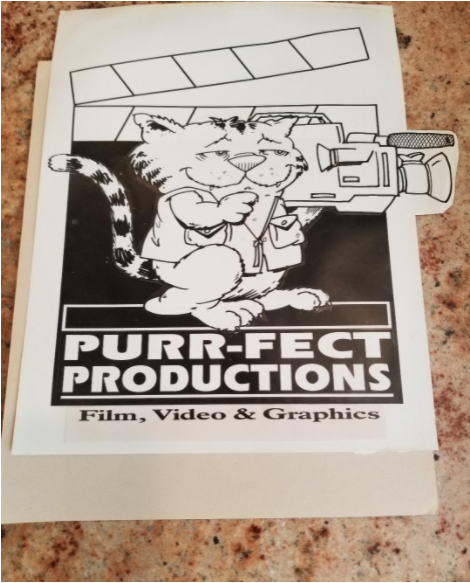How to Get the Job You Want — Selling Your Value: Part 1

Many years ago, I worked on a few Fingerhut commercials that still resonate with me to this day. In the commercial, the actress would hold up her finger and say the tagline, “That’s Value with a capital V.”
My point here is the word “Value.” It has different meanings to different people. My focus when I attended Ithaca College (many, many years ago) was on film/video production with a bachelor of science in communication and a minor in writing. After I graduated (and moved to New York City) and could not get a job in this field fast enough, so I took a job at NW Ayer, an advertising agency with a film/video production department. I started working on the Continental Airlines account as an assistant to an account manager, with the goal of eventually moving to the production department. After a short period of time, I realized that to afford life in NYC, I had to put in a lot of overtime. Back then, a work week was Monday-Friday from 9 a.m. to 5 p.m. with one hour each day for lunch. However, during summer at this ad agency, we worked half days on Friday. So, at — wait for it — a $12,500 salary, I needed to more than double my compensation per year, so I worked at least 60 hours per week at time and a half to make about $30,000 per year. (That allowed me to go out for dinner every now and then.)
With so much overtime, I quickly learned everything I could about the responsibilities of an account manager and a senior account manager as I started to take on more and more of their tasks. Within a couple of months, I was completing most of my boss and her boss’s daily workload. Eventually, I reached out to the creative department on the Continental Airlines account to start supporting them as well — I even sat in on their internal pitch meetings. But when I attended one of the commercial shoots, I remember being disappointed to see a person dressed up as a samurai using a sword to cut a seat in half, as in, they are “cutting their prices in half.” I started to question if I made the right decision working in an advertising agency office, rather than my true interest, at a film/video production company.
This curiosity led me to start targeting local production studios, and since I had some more work experience this time, I was able to get more interviews. One of the production companies at the top of my list not only had a stage and postproduction suites, but they also hosted casting calls and did a lot of on-location shoots — an all-in-one facility. I had to get this job, not only because I could not waste any more of my time working at that ad agency, but this was a great opportunity that I did not want to lose, and it would pay me more! I was able to get two separate interviews at Tulchin Studios. During the first interview with the owner, Hal Tulchin, I toured the entire facility (sort of a reconnaissance) which included one large, curved stage with room for different sets, one makeup room, a voice-over booth, multiple cameras, large lighting grid, two editing rooms, one large tape room, dubbing station and a few small offices within a two-story building — I think the only one of its kind in the entire city. (By the way, Jimmy Fallon interviewed Questlove in June this year on the Tonight Show, and he mentioned Hal Tulchin while discussing his own film, “Summer of Soul,” which was based on footage and interviews done by Hal in the late 1960s. Believe me; I was a little stunned.)
My second interview was with the general manager. The final hiring decision was up to him so I knew that I had to think of the right things to say to convince him to hire me. As we were talking, I realized that I was very familiar with nearly every piece of equipment in their facility (cameras, lighting, boom mics, preview monitors, control room equipment, film equipment, postproduction, dubbing and degaussing equipment). Thus, no learning curve, which I mentioned to the GM, Bob. So, they hired me … as a receptionist. They promoted the existing receptionist to the production assistant position. This experience taught me to ask, “Is this a new position or am I replacing someone and why?” Anyway, I started as the main receptionist, answering 16 phone lines at a time. Hal said that if any line rings more than three times, I’d get fired (true story). I did such a good job that three months later, I was promoted to a production assistant, then production assistant, then asst. producer, then producer and then prod/asst. dir.
During my tenure at Tulchin Studios, I learned a lot about working with many different types of people. This included famous athletes, actors, actresses, models, industry colleagues, union workers, ad agencies, enterprise clients, entrepreneurs, etc. One of the worst things I ever had to do as a PA was during a :10 video spot for Dunkin Donuts commercials (which were shot and edited on film). This was with the actor, Michael Vale (you know, “Time to Make the Donuts”), who was very nice. Unfortunately, craft services set up chocolate eclairs (like 30) on a table next to the cameras. Michael would say his line and take a bite out of the éclair and spit it out in a bucket … that I got to hold off-camera. To this day, I still get nauseated looking at buckets.
Back to my point — I worked at Tulchin for four years until I started my own production company called Purr-fect Productions (see actual logo below) at age 27. I had read an article that one should start a company before age 30 to help prepare for later in life.

After two years of 90+ hours per week (that included lugging a bag of Betacam demo tapes to various ad agencies and corporations in NYC to get commercial and corporate projects and videotaping depositions in Long Island hospitals for law firms), I closed up my company. I took a job as an account manager at a relatively small CD-ROM OEM hardware and software company in Long Island.
I had met with several companies, but this one, TODD Enterprises, stood out. The main office was close to our house (we were planning on having our first child) so I could be home when needed. I wanted to get into selling solutions, as I learned during my tenure in film/video productions that clients want you to handle as much of their project as possible. I convinced the owner that I listen and learn from others and am willing to put in the hours needed to become successful and help his company expand.
After about two years, I got to mentor two new inside sales associates, so after a certain period (and experience), they would get promoted to become outside account managers. I was happy to help because as they became more successful, then our company would grow as well. When I left, one of the sales associates sent me a letter that to this day, I really appreciate (I have a copy if anyone is interested in reading it). So, if you have a chance to help those with less experience, do so without hesitation.
Eventually, I thought following my CTO to join a larger CD-ROM company (based in California) would work out very well (continue to learn the technology, grow the business, make more money) as there was nothing left for me to do at TODD. I managed two territories (Midwest and Southeast), managed two inside sales associates and oversaw the Opti-Net networking software part of our business (our owner purchased the software distribution rights from Reed Elsevier), the first and leading CD-ROM networking software at that time. I was completely wrong! The executive team was not honest, took advantage of their employees and had no interest in developing the Northeast territory. Literally, after three months, one of the executives told me they had decided not to honor my contract to provide me with any commission, just my salary, which was not a lot, even back then. So, I continued to do my job despite knowing I would receive no commission on all the business I brought in (>$800,000 within that first year).
So, moral of the story is, prior to joining any organization, make sure you meet all the people you will be working with and that the company adds value to you as well. In fact, one of the companies I interviewed with while working for the California-based company had a manager and sales team based in NYC. I went to lunch with one of the salespeople to ask questions about the company and culture. The first thing she said at lunch was, “Don’t work here, they will be out of business in less than a year.” And she was absolutely correct.





